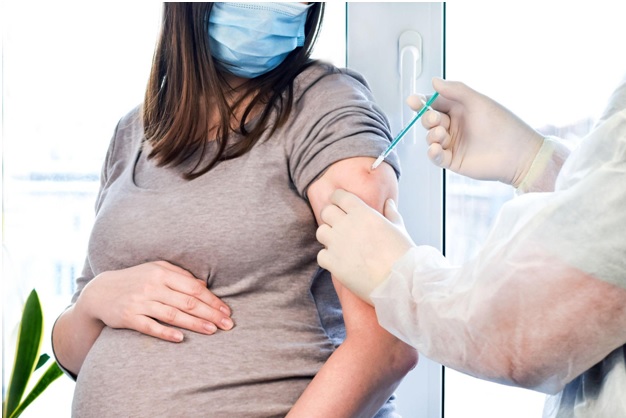Vaccination in pregnancy
- Are vaccines safe during pregnancy?
- Which vaccines should I get if I am pregnant?
- Which vaccines should I not get if I am pregnant?
- Can a vaccine harm my developing baby?
- Are vaccines safe if I am breastfeeding?
Are vaccines safe during pregnancy?
Certain vaccines are safe and recommended for women before, during, and after pregnancy to help keep them and their babies healthy. The antibodies mothers develop in response to these vaccines protect them, cross the placenta, and help protect their babies from serious diseases early in life. Vaccinating during pregnancy also helps protect a mother from getting a serious disease and then giving it to her newborn.
Which vaccines should I not get if I am pregnant?
Some vaccines are not recommended during pregnancy, such as:
- Human papillomavirus (HPV) vaccine
- Measles, mumps, and rubella (MMR) vaccine
- Live influenza vaccine (nasal flu vaccine)
- Varicella (chicken pox) vaccine
- Certain travel vaccines: yellow fever, typhoid fever, and Japanese encephalitis
Note: these travel vaccines should generally not be given during pregnancy unless your healthcare provider determines that the benefits outweigh the risks.
If you get any of these vaccines and then find out you are pregnant, talk to your doctor. Further doses of the vaccines, if needed, should be given after you have completed the pregnancy.

Vaccinations recommended in Pregnancy
TT/ TdVac vaccine
Ministry of Health and Family Welfare has recommended the use of Td rather than TT during pregnancy to protect against maternal and neonatal tetanus & diphtheria during prenatal care.
To maximize the maternal antibody response and passive antibody transfer to the infant, the national immunization schedule in India recommends 2 doses of the immunization status of pregnant women i.e the first dose of TT should be administered as soon as pregnancy is detected, a second dose of tetanus toxoid is administered after 4 weeks and if a mother received 2 TT doses in the last pregnancy and mother gets again pregnant within 3 y than only one dose of TT is recommended and that dose is called booster dose. Some experts recommend that the second dose of the vaccine should be given 4 weeks before the expected date of delivery. The WHO also recommends that a third vaccine be given 6 months after the second one to protect at least 5 y After TT vaccination, the antibodies formed in the mother are transferred to the baby and protect the baby for a few months after birth.

TdaP Vaccine: Tetanus, diphtheria, and pertussis vaccine. This is also called Tdap. One dose of the Tdap vaccine is recommended during each pregnancy. That’s true no matter when
you had your last Tdap vaccination. Getting the Tdap vaccine during pregnancy helps protect your newborn from whooping cough, also called pertussis. The CDC recommends that Tdap be given between 27 and 36 weeks of pregnancy. Even if a pregnant person has had a Tdap vaccine in the past 10 years, it should be given again.
Babies don’t get their first dose of DTaP until they’re 2 months old. Pertussis (whooping cough) can be very severe in newborns. Giving Tdap in pregnancy provides the newborn with some protection.
What is the difference between DTaP and Tdap vaccines?

Both DTaP and Tdap protect against the same diseases but are used in different age groups.
Babies and children under age 7 will always get DTaP. Children over age 7 and adults will always get the Tdap vaccine.
The DTaP vaccine contains full-strength doses of all three vaccines. The Tdap vaccine provides a full-strength tetanus vaccine and smaller doses of diphtheria and whooping cough to maintain immunity during pregnancy.
Can a vaccine harm my developing baby?
Some vaccines, especially live vaccines, should not be given to pregnant women because they may be harmful to the baby.
Are vaccines safe if I am breastfeeding?
Yes. It is safe to receive routine vaccines right after giving birth, even while you are breastfeeding. However, yellow fever vaccine is not recommended for breastfeeding women unless travel to certain countries is unavoidable and a healthcare provider determines that the benefits of vaccination outweigh the risks.

